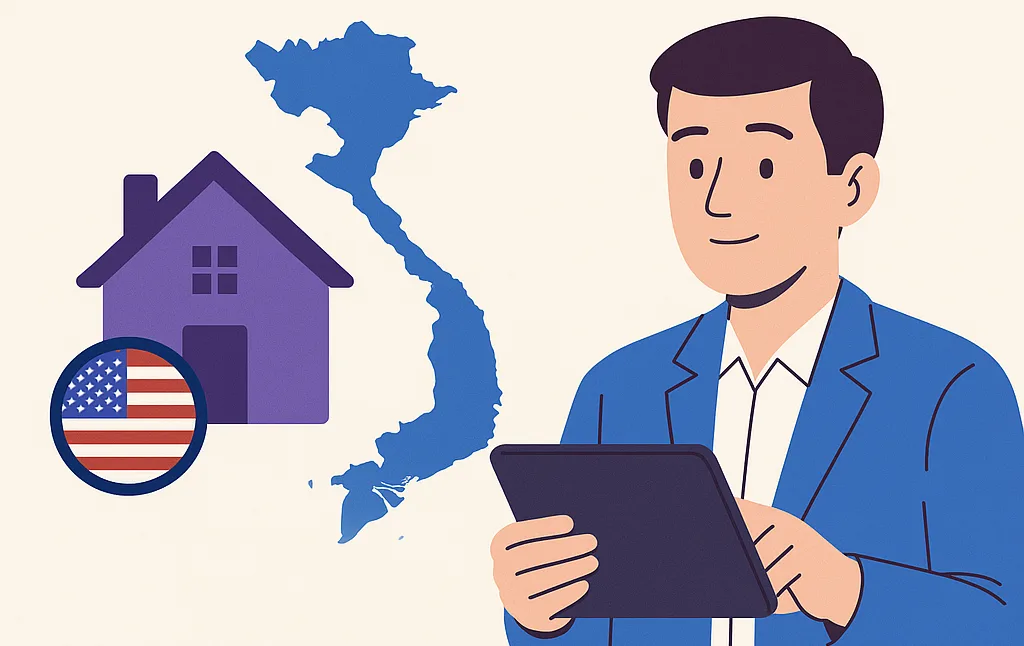Managing Properties in Vietnam as a U.S. Investor: What You Need to Know
For U.S.-based investors, Vietnam is an emerging market with strong rental demand in cities like Ho Chi Minh City, Hanoi, and Da Nang. But managing property abroad comes with unique challenges. Here’s what you need to know before diving in.
Why Vietnam is Attractive for U.S. Investors
-
Growing rental market: Expanding middle class, rising demand for urban rentals.
-
High yields: Gross rental yields in Vietnam’s major cities can often outpace many U.S. metros.
-
Lower entry costs: Property prices are lower compared to U.S. investment hotspots.
Ownership Restrictions for Foreigners
-
U.S. citizens can legally own property in Vietnam, but only in certain forms:
-
Leasehold basis (typically 50 years, renewable).
-
Ownership capped at 30% of units in one building, or 10% of houses in a neighborhood.
-
-
Land is never freehold (all land is owned by the state).
The Challenge: Remote Property Management
Managing properties from thousands of miles away requires reliable local support. Common challenges include:
-
Tenant screening: Standards differ from the U.S.; local agents may not verify as thoroughly.
-
Rent collection: Cash is still common; you’ll need a property manager who can handle bank transfers or digital wallets.
-
Maintenance and repairs: Local vendors vary in quality; trust and oversight are critical.
-
Legal compliance: Lease contracts, eviction laws, and taxes differ greatly from U.S. norms.
Finding a Local Property Manager
When hiring a property manager in Vietnam:
-
Look for bilingual managers (English/Vietnamese).
-
Verify their experience with foreign landlords.
-
Confirm how they handle emergencies, tenant disputes, and rent transfers.
-
Request transparent monthly reporting in English.
Taxes and Reporting for U.S. Owners
-
Rental income in Vietnam is subject to Vietnamese tax (usually withheld by the property manager).
-
As a U.S. citizen, you must also report foreign rental income to the IRS.
-
You may be able to use the Foreign Tax Credit to avoid double taxation.
Tips for Success
-
Start with one property before scaling.
-
Use a reliable Vietnamese bank that supports international transfers.
-
Maintain regular communication with your manager via email/WhatsApp.
-
Visit periodically if possible to check on assets.
Rental Yields & Market Data
-
Global Property Guide – Vietnam Property Price History:
https://www.globalpropertyguide.com/asia/vietnam/price-history - Global Property Guide – Vietnam Rental Yields:
https://www.globalpropertyguide.com/asia/vietnam/rental-yields
Market Trends & Forecasts
-
Invest Vietnam Blog – The Vietnamese Property Market: An In-depth Analysis and Outlook for 2025:
https://blog.investvietnam.co/the-vietnamese-property-market-an-in-depth-analysis-and-outlook-for-2025/
Regulatory & Legal Updates
-
CVR – Week 28 2024 Central Vietnam Real Estate News Summary:
https://cvr.com.vn/week-28-2024-central-vietnam-real-estate-news-summary/
Final Thoughts
Vietnam offers exciting opportunities for U.S. investors, but distance and regulations make local property management partners essential. With the right systems in place, you can enjoy strong returns without constant stress.
If you’re considering international property management, make sure you download our Tenant Screening Checklist to understand what standards you should expect—whether at home or abroad.










6 comments